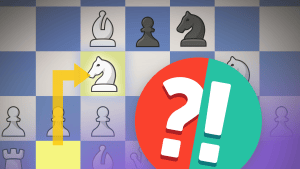
I offer a draw... or I resign!
It is a very common situation in chess when in the last round, one chess player is in a must-win situation and his opponent needs just a draw to achieve his goal. Sometimes it leads to hilarious incidents.
The year is 1935 and it is the last game of the World Championship match Alekhine-Euwe. Grandmaster Max Euwe is one step away from the goal of his life - the World Champion title. All he needs is a draw. So, before the game he told Alekhine: "I will accept a draw at any point of the game." Forty moves and several hours later, Alekhine found himself in a completely lost endgame. Nevertheless, he said: "Dr. Euwe, I accept your draw offer."
Here is the final position of the game:

A similar situation happened in the last game of the Candidates’ Match Petrosian-Korchnoi in 1971. Korchnoi needed a win to equalize the score, but his position was completely lost. So, reportedly his words were: "I offer a draw... or I resign!" Petrosian chose a draw (they were still friends at that point).
And who can forget Kasparov's draw offer in a completely winning position in the last game of his World Championship Match vs. Karpov in 1990:
 Kasparov explained that it was New Year's Eve and he felt that he didn't really deserve to win this game due to his poor play, so he decided to offer a draw. Probably the huge paycheck that came with a win in the match was also a part of his decision to offer a draw.
Kasparov explained that it was New Year's Eve and he felt that he didn't really deserve to win this game due to his poor play, so he decided to offer a draw. Probably the huge paycheck that came with a win in the match was also a part of his decision to offer a draw.
Have you ever seen a game where a chess player resigns but the result of the game is a draw? That's exactly what happened in the last game of the Candidates’ Match Yusupov-Ivanchuk. The Ukrainian grandmaster needed a win, but the position on the board looked anything but. Judge for yourself:
The next move White is going to capture the b5 pawn and Black will suffer in the endgame two pawns vs. one on the same side of the board. If Black plays accurately it should be a draw, but there is absolutly no chance for Ivanchuk to win. Since a draw or loss was absolutely the same for Ivanchuk, he resigned and immediately left the playing room. Here is what happened next according to Yusupov's coach and second IM Mark Dvoretsky:
"How did the game end?" — the arbiter asked Yusupov.
"It was drawn."
"But I heard him resign!"
"That is not important. I offered a draw, and the position is in fact drawn" — the grandmaster replied.
As the result, a peaceful outcome of this extremely tense fight was agreed, and Yusupov reached the Semi-Finals of the World Championship Candidates’ Tournament for the third time in succession.
Many people heard the story of the "sunglasses game." GM Pal Benko was supposed to play Mikhail Tal in the Candidates’ Tournament in 1959, but the score of their previous games was 5-0. So, the evening before the game, Benko announced that he knows how Tal beats his opponents: he hypnotizes them! As a result, Benko wore dark sunglasses throughout the whole game. You can see it here:
But not many people know that in this game, all Tal needed was a draw to win the tournament and qualify for the World Championship Match vs. Botvinnik. Tal's second Alexander Koblencs insisted that Tal offer a draw on move 12, which Tal did. Despite his awful score against Tal, Benko decided to play and five moves later he could already resign. But instead of going for a winning endgame with two extra pawns, Tal forced a draw by a perpetual check:
After the game Tal explained: "When I want to win against Benko, I win; when I want to draw, I draw!"
There are many people who want to enforce the so-called Sofia rule in every single tournament or even ban a draw offer altogether. For them the sheer thought that Tal offered a draw on move 12 is unbearable. And making a draw in a completely winning position? Disgusting! But in my opinion all these amusing episodes are an integral part of what is known as "the golden age of chess." Without them the history of our beloved game would be poorer.

